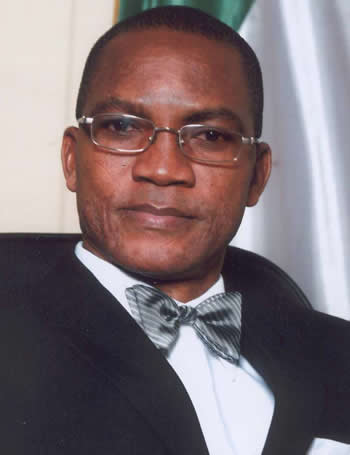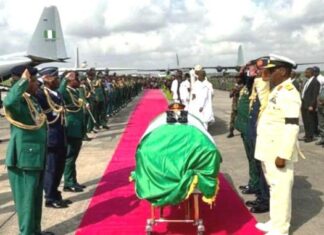Debt sustainability is a matter for concern, with Nigeria’s debt standing at about N12 trillion as of December 31, 2015 at a time government’s earnings dropped 60 per cent due to oil price slump.
Debt Management Office (DMO) Director General, Abraham Nwankwo, says citizens need not worry because Nigeria’s 13.02 per cent debt to Gross Domestic Product (GDP) ratio is low compared with 56 per cent in other countries in the same group as Nigeria.
He spoke at a workshop for Capital Market Correspondent Association of Nigeria (CAMCAN) in Lagos, attended by Assistant Business Editor, KELECHI MGBOJI.
Nigeria’s debt to GDP ratio
Nigeria’s debt to Gross Domestic Product (GDP) ratio was 13 per cent as of December 31, 2015.
But Nigerians should be more conscious of debt service revenue ratio. In that regard, I am encouraging all Nigerians, particularly journalists, to continue mobilising the citizens to make sure individuals and companies pay their tax fully, as and when due.
Our tax revenue to GDP ratio is low, relative to tax revenue to GDP ratio of countries in our peer group. So, the real challenge of debt sustainability in Nigeria goes beyond public debt. It is more of the resources than anything else.
As our economy grows, as GDP grows, the question is, are we collecting enough in tax resources from individuals and corporate organisations so that we will be able to fund public projects?
This is the question everyone has to consider. And the answer is no.
Improved tax revenue to GDP ratio
The new administration, under the Ministry of Finance and the Federal Inland Revenue Service (FIRS), is doing its best to make sure that tax administration is effective and compliance is near 100 per cent.
So, based on that, we expect that in the next couple of years, the country’s tax revenue to GDP ratio will rise.
And if it rises to about 18 per cent, which is the norm for countries in our peer group, it means the government will have more resources to fund capital projects. It also means it will have more resources to service debts, and debts will become more sustainable.
Now, it is sustainable alright, but that does not mean we don’t have work to do. We have a lot of work to do in making sure that everybody pays tax.
But more importantly, everybody should do his best to make sure that the programme of the government towards diversifying the economy is achieved.
If the economy is diversified and growing fast in a sustainable manner, then we are in a position to mobilise resources in both public and private sectors to support continuous sustenance of the economy.
So, I can say that in the medium to long term, debt sustainability in Nigeria hinges on the over all economic sustainability.
And overall economic sustainability hinges on diversifying the economy in a sustainable manner, which is the programme the government is pursuing in agriculture, solid minerals, ICT (information communication technology), manufacturing, et cetera.
To do that, we need a strong infrastructure base, and that is why the government is laying emphasis on spending what it borrows on infrastructure.
Citizens need not worry about the current debt profile because Nigeria’s 13.02 per cent debt-to-GDP ratio is still very much low compared with 56 per cent in other countries in the same group as Nigeria.
Citizens should rather be concerned about the country’s very low comparative tax revenue to GDP ratio.
Nigeria’s tax revenue to GDP ratio is less than 7 per cent, far below its peer group at 18 per cent, and 27 per cent of those of industrialised countries.
The government requires average taxation of about 30 per cent to create maximum value for the economy.
Taxable individuals and corporate organisations should support the government to widen the scope and ensure effective tax administration compliance.
There must be effective tax administration compliance in running the economy. All over the world, government depends optimally on taxation to run the economy.
Going by our population, Nigeria should not find it difficult undertaking huge projects. We should not have problem reviving infrastructure. The minimum we should do is 18 per cent like that of our peers.
Raising funds for the budget
The DMO does not determine what to borrow to support the economy. The president just signed the 2016 Appropriation Bill into law.
In the budget, it is stated that in 2016, the country would borrow from external sources about N900 billion, and from domestic sources about N984 billion, making a total of N1.84 trillion.
The DMO is committed to making sure we raise this money from appropriate sources, in the appropriate mix, and appropriate terms and conditions to make sure that during the fiscal year the projects are funded.
The government is very clear that every kobo it borrows is going into funding capital projects. And we assure Nigerians that the DMO will raise the total amount specified in the budget for the purpose of funding the capital projects in the budget.
We cannot give any assurance stronger than that of the President Muhammadu Buhari who assured the citizens when he presented the budget to the National Assembly (NASS) that all the money his administration will borrow in the fiscal year will be used to fund capital projects.
Ours is to make sure the government raises the funds to implement the budget to the last letter.
Bonds so far raised
The DMO is very proactive.
We’re aware that the budget was taking its due process, but we did not go to sleep. That’s why as the president stated that now that the budget has been signed into law, he will immediately release N300 billion to start funding capital projects.
That shows he appreciates the fact that based on his mandate, some money has already been raised. We go to the market every month to raise money to fund the budget.
So, we have been proactive in working towards the implementation of the budget.














